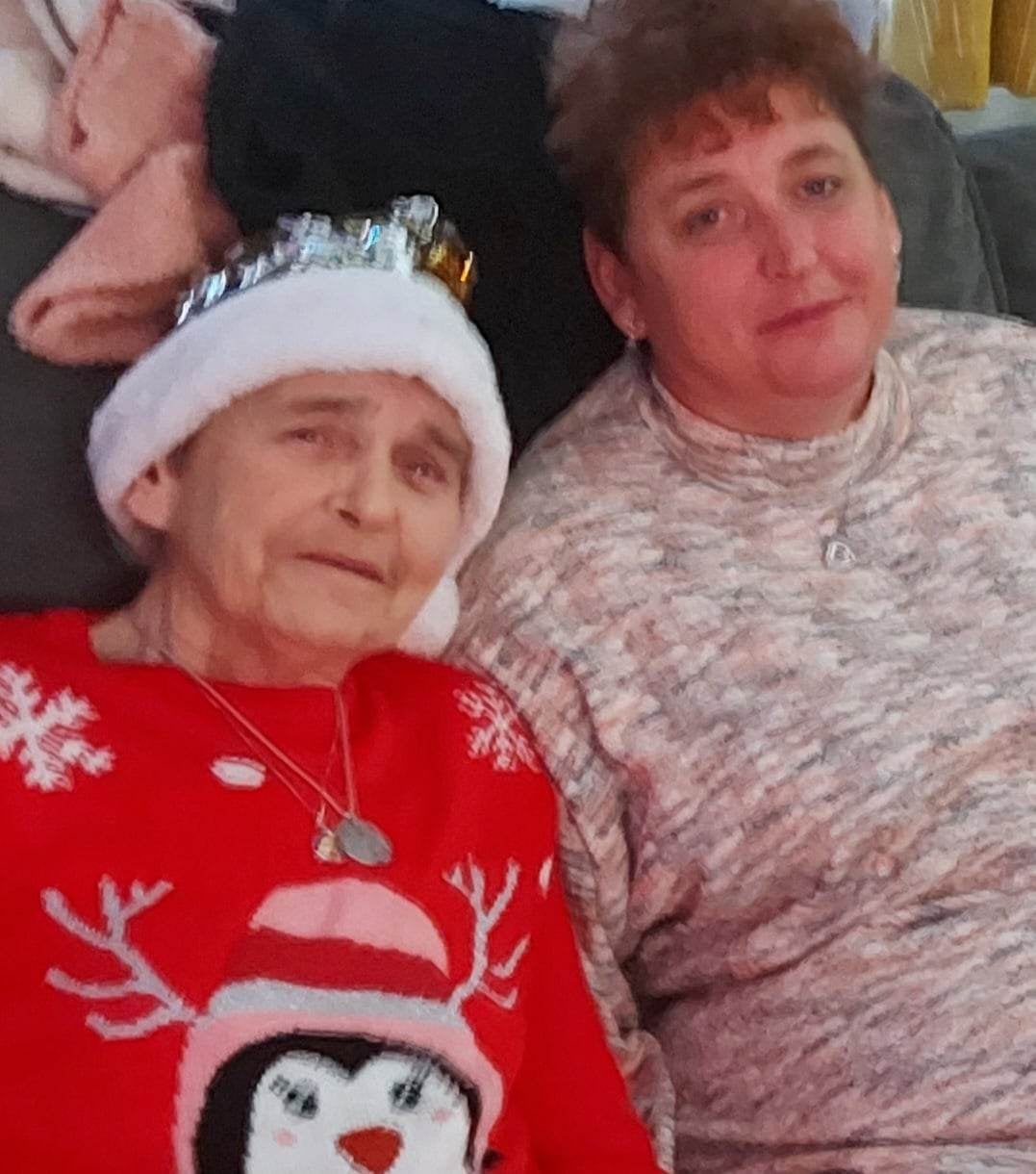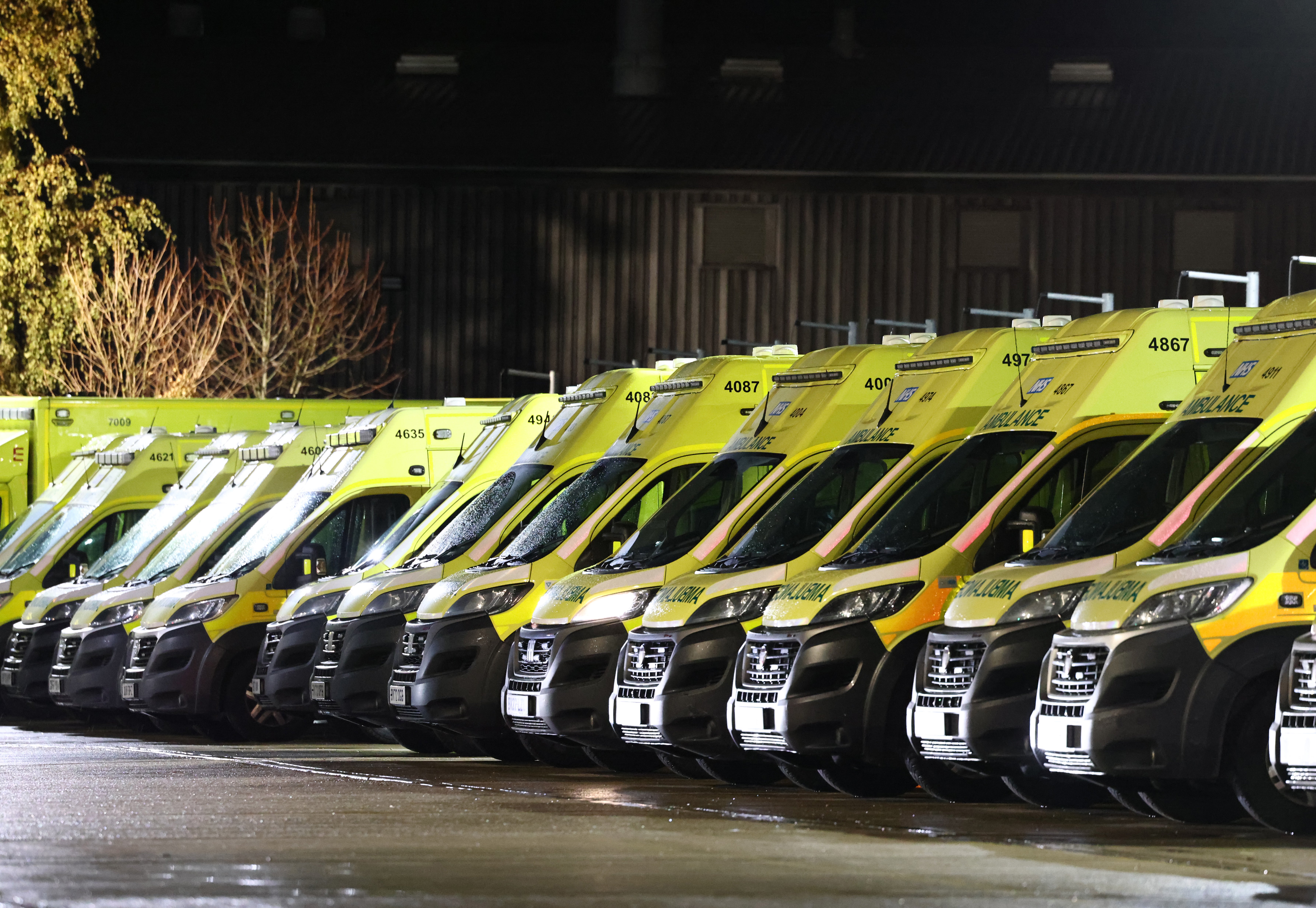Woman, 70, battling lung cancer forced to wait 24 hours for ambulance after fall
Exclusive: Marlene Fear’s daughter cancelled callout after ambulance service said it could take another 10 hours despite already waiting whole day

Your support helps us to tell the story
From reproductive rights to climate change to Big Tech, The Independent is on the ground when the story is developing. Whether it's investigating the financials of Elon Musk's pro-Trump PAC or producing our latest documentary, 'The A Word', which shines a light on the American women fighting for reproductive rights, we know how important it is to parse out the facts from the messaging.
At such a critical moment in US history, we need reporters on the ground. Your donation allows us to keep sending journalists to speak to both sides of the story.
The Independent is trusted by Americans across the entire political spectrum. And unlike many other quality news outlets, we choose not to lock Americans out of our reporting and analysis with paywalls. We believe quality journalism should be available to everyone, paid for by those who can afford it.
Your support makes all the difference.A 70-year-old woman receiving end-of-life care for lung cancer was left waiting 24 hours for her ambulance after a fall.
Marlene Fear, who suffers from stage four lung cancer, chronic obstructive pulmonary disease (COPD), emphysema and osteoporosis, collapsed in her bathroom at around 9am.
Over the course of the next day, she saw her ambulance arrival time constantly pushed back, and by the time it had reached 24 hours she was asked if she would wait a further 10.
Her family ended up cancelling the call out of exasperation and she has been recovering from the fall at home in Merthyr Tydfil, South Wales.
Her daughter Rhiannon Popp, who takes care of her with help from visits from Macmillan nurses, said she was ‘livid’ and claims it showed her mother is “seen as a number and not a real person”.
“It was disgusting,” the 45-year-old singer said. “I know the NHS is under pressure and I understand it, but what happens when it is her time to pass? “It is daunting and frightening me.”
During her fall on November 4, Ms Fear struggled to get herself up and called for her daughter for help.
Ms Popp said she found her mother “pale, shaken and cold to the touch” and called an ambulance.

Twelve hours after her fall a rapid response car attended to check up on Ms Fear.
The paramedic offered to take her to the local Prince Charles Hospital in the vehicle but the family was forced to decline due to her physical limitations.
Ms Popp said her mother cannot sit up for long periods and struggles to stand or walk, so felt they could not get her into the car and so kept waiting for the ambulance. She had already suffered from bruises all down the side of her body, where she had fallen off the toilet and bruises on the lump on her head.
The ambulance service then said the wait could be another 12 hours, and by 9am the following morning there was still no sign.
Ms Popp was asked again if she could put her mother in the back of a car or wait a further 10 hours for an ambulance, at which point they declined again and cancelled the callout.

“I am not well myself I can’t lift her in my car, if I dropped her and something serious happened, like breaking her hip, I would be devasted”, Ms Popp said.
“The lady is at end of life care, she shouldn’t have to be put in a car to be taken to hospital, to wait another seven hours in the waiting room on a chair.
“I cancelled the ambulance, she did not want it, she did not want to be pulled and prodded about and she had already waited 24 hours. Her attitude was ‘well they don’t care about me anyway.’
“By this time, she wanted to be left alone and didn’t want to know. She didn’t want to be waiting another 10 hours.”
The incident comes as Welsh Ambulance Service recorded its worst set of response times to life-threatening calls in its history.
In some parts of Wales more than 60 per cent of the most urgent 'red' calls were not reached within the target time of eight minutes.
On Wednesday, ambulance workers in Wales joined the UK-wide strikes as part of the ongoing dispute over pay.
Kevin Crowther, South-East Region Service Manager at the Welsh Ambulance Service, said: “We are deeply sorry to hear about Mrs Fear’s experience, and we extend our sincere apologies to her.
“Ambulance waiting times are well-documented in the media, and hospital handover delays remain the single biggest reason we cannot get to some patients quickly.”






Join our commenting forum
Join thought-provoking conversations, follow other Independent readers and see their replies
Comments